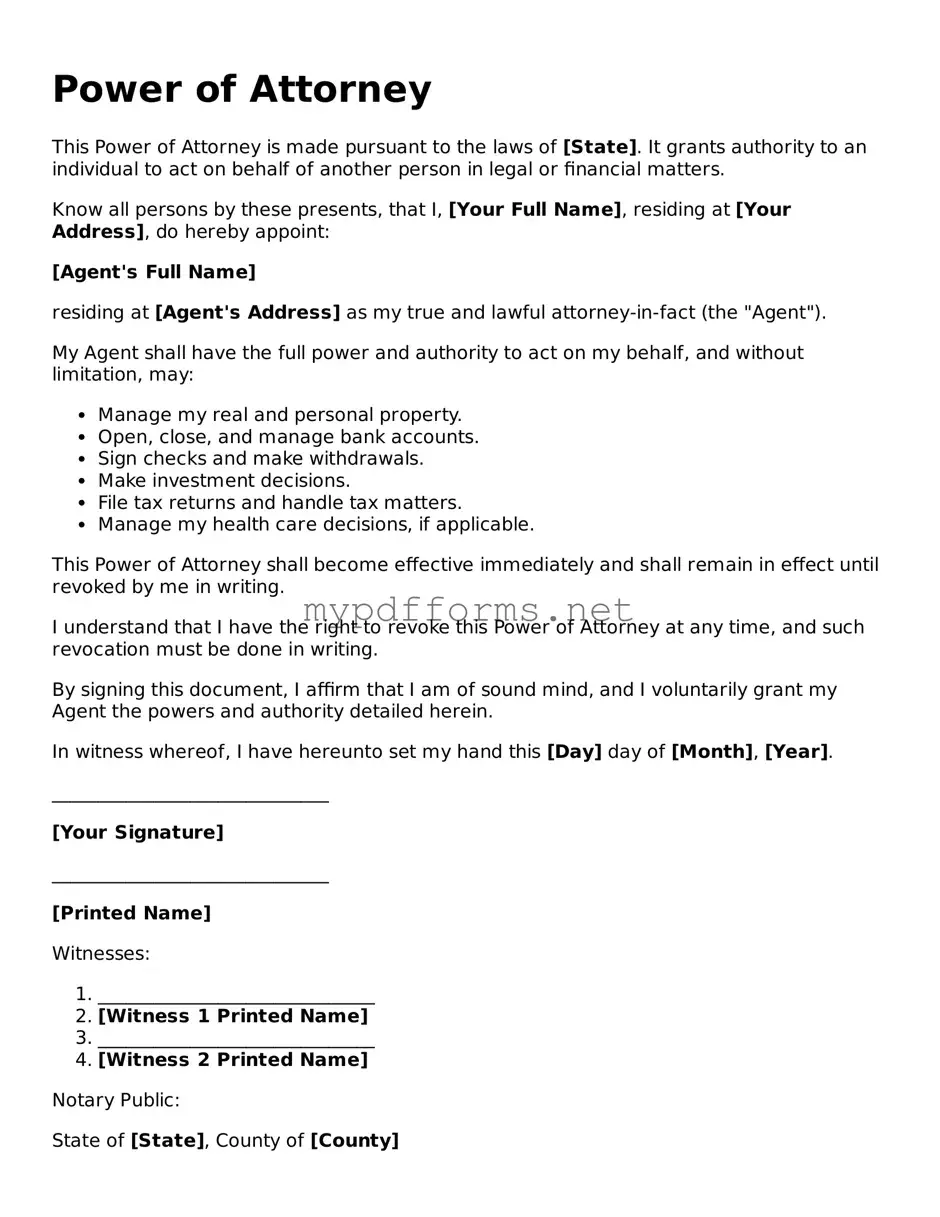A Living Will is a document that outlines your preferences for medical treatment in the event that you become unable to communicate your wishes. Similar to a Power of Attorney, a Living Will allows you to express your desires regarding life-sustaining treatments. While a Power of Attorney appoints someone to make decisions on your behalf, a Living Will provides specific instructions about what you want or don’t want in terms of medical care. Both documents serve to protect your rights and ensure your wishes are honored when you cannot speak for yourself.
When establishing a business, having an effective document in place is essential, and an important step is drafting an effective Operating Agreement document to define the operational guidelines and member roles within your Limited Liability Company (LLC). This ensures a clear understanding of the business framework for all involved parties.
A Healthcare Proxy is closely related to a Power of Attorney, but it specifically focuses on healthcare decisions. When you designate a Healthcare Proxy, you choose someone to make medical choices for you if you are unable to do so. This document complements a Power of Attorney, which may cover a broader range of decisions beyond just health-related matters. Together, they create a comprehensive plan for managing your affairs in times of incapacity.
A Durable Power of Attorney is a variation of the standard Power of Attorney that remains effective even if you become incapacitated. This ensures that your appointed agent can continue to act on your behalf without interruption. The key difference lies in its durability; while a regular Power of Attorney may become void if you lose capacity, a Durable Power of Attorney is designed to remain in effect, providing peace of mind that your affairs will be managed as you intended.
A Financial Power of Attorney is another specific type of Power of Attorney that grants someone the authority to handle your financial matters. This document allows your agent to manage tasks such as paying bills, filing taxes, and making investment decisions. While a general Power of Attorney may encompass a wide range of responsibilities, a Financial Power of Attorney is focused solely on your financial well-being, ensuring that your monetary affairs are in capable hands.
A Trust is a legal arrangement that allows you to transfer your assets to a trustee, who manages them on behalf of beneficiaries. Like a Power of Attorney, a Trust can help ensure your wishes are followed after your passing or in the event of incapacity. Both documents provide a way to manage your affairs, but a Trust often involves the transfer of assets, while a Power of Attorney focuses on decision-making authority.
A Will is a document that outlines how you want your assets distributed after your death. While a Power of Attorney is effective during your lifetime, a Will comes into play after you pass away. Both documents are essential for estate planning, as they help ensure your wishes are honored. A Power of Attorney allows someone to manage your affairs while you’re alive, while a Will directs how those affairs should be handled after you’re gone.
An Advance Directive is a broader term that encompasses both Living Wills and Healthcare Proxies. It allows you to communicate your healthcare preferences and appoint someone to make decisions on your behalf if you become incapacitated. Similar to a Power of Attorney, an Advance Directive ensures that your healthcare wishes are respected. Both documents empower you to take control of your medical decisions, even when you can no longer voice them.
A Guardianship document is used when a court appoints someone to make decisions for another person who is unable to do so. While a Power of Attorney is created voluntarily and allows you to choose your agent, a Guardianship is established through a legal process. Both serve to protect individuals who cannot manage their own affairs, but the key difference lies in the level of control and the process involved in appointing the decision-maker.
An Authorization for Release of Information allows someone to access your personal information, such as medical records or financial documents. This document is similar to a Power of Attorney in that it grants authority to another person, but it is often more limited in scope. While a Power of Attorney provides broad decision-making powers, an Authorization for Release of Information focuses specifically on sharing information, ensuring that your privacy is respected while allowing necessary access.
A Nomination of Guardian is a document where you can express your wishes regarding who should take care of your minor children in the event you are unable to do so. This is similar to a Power of Attorney in that it allows you to designate someone to act on your behalf. However, a Nomination of Guardian specifically addresses the care of children, while a Power of Attorney can cover a wide range of decisions for adults, making each document vital for different aspects of planning for the future.

